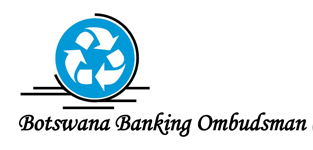Preface:
The Botswana Banking Ombudsman Office in collaboration with the Ministry of Finance and Economic Development and the Competition and Consumer Authority undertook a countrywide financial inclusion road show in March, 2021

Introduction
Financial inclusion is defined as the individuals and business’s ability to have access to sustainable, affordable and useful financial services and products that seek to meet their felt needs and priorities. According to the Botswana Government, the Botswana Financial Inclusion Roadmap and Strategy 2015-2021 dubbed “Deepening access, extending financial services to the farthest corners of Botswana” has far reaching implications for catapulting financial inclusion across the country and further making access to financial inclusion possible. Making Access Possible (MAP) according to Botswana Government is considered as a multi-country strategic initiative geared at supporting financial inclusion through diverse ways such as evidence-based research country wide, dialogue with stakeholders, and ultimately culminating into a nation’s pathway.
To this end, the government identified 6 Priority Areas being
- (a) Priority 1- Development of Payments Ecosystem;
- (b) Priority 2 – Facilitate Low-Cost Accessible Savings;
- (c) Priority 3- Develop Accessible Risk Mitigation Products;
- (d) Priority 4- Improve The Working of the Credit Markets;
- (e) Priority 5- Consumer Empowerment and Protection;
- (f) Priority 6 – National Coordinator;
- Jwaneng – 16th March, 2021.
- Tsabong- 17th March, 2021.
- Hukuntsi – 18th March, 2021.
- Ghanzi – 19th March, 2021.
- Maun – 19th March , 2021.
- Kasane – 24th March, 2021.
- Selebi-Phikwe – 26th March, 2021.

Coverage
As you may be aware, as a member of the Botswana Financial Inclusion Technical Group tasked with the implementation of the Financial Inclusion Strategy 2015-2021 under Priority 5 – Consumer Empowerment and Protection we were required to undertake a financial inclusion road shows from 16th to 27th March, 2012 across the country as per the itinerary. This was following this office presentations in February 2021 on Botswana Television and Radio Botswana (RB1) on the topic: Understanding your responsibility in terms of credit agreements”.
Participants
The target participants for these workshops were Village Leadership (Dikgosi, District Commissioners, Councillors, Village Development Leaders, Council Secretaries, Council Chairs, Police Officers, Prison Officers, Bank Officials, private organisations, non-governmental organisations etc) in each locality with limited participants up to 50 in accordance with the Covid 19 Protocols for workshops. Furthermore, the entire workshop Facilitators and Conveners were required to undertake Covid 19 test before and after this engagement.
Rationale
Financial inclusion places emphasis on the main core product markets, namely; Credit, Payments, Savings and Insurance. Critical importance being to empower consumers through education and protection to enable full reaping of benefits envisaged in financial services and products in the market. People tend to make wrong financial decisions due to lack of financial education. Barrier to access product providers, financial services providers and consumers due to lack of understanding of insurance. Improved consumer protection can be achieved through the introduction of a reorganisation of prudent regulation and market conduct responsibilities across regulators including the introduction of financial ombudsman schemes across all financial services sectors. The rationale behind the country workshops was to introduce the aspects of financial inclusion which will be followed by intense workshops predicated to address gaps identified through a diagnostic study on financial services and products in 2015 by Finmark Trust and Centre for Financial Regulation and Inclusion (CENFRI).
Workshops Presentations
The Main Topic which was covered was “Understanding Your Rights and Obligations/Responsibilities as a Consumer”. There were at least 3 presentations prepared and these were delivered based on the target group and the DNA of the locality as perceived by the Facilitator through background check of localities.
The Framework of the presentations was preceded by the following:
- Brief introduction to our office functions, mandate and responsibilities.
- The role of the Banking Ombudsman Office in the financial inclusion sphere in Botswana.
- Brief overview of legislation underpinning the rights and obligations of consumers in Botswana – Consumer Protection Act 2018 and the global law- Consumer Bill of Rights.
Your Rights As A Consumer
- Understanding your contract(s).
- Right to demand and obtain products and services
- Products and services ought to meet consumer’s requirements, harmless to life, health and property.
- The right to refuse to pay for products and services not asked for.
- The right to cooling-off
- Timeous delivery of goods and services
- Right to obtain information on consumer law and other issues relating to consumption.
- Availability of timely remedies and right to obtain advice and assistance if rights are violated.
Your Obligations/Responsibilities
- Product familiarization
- Defective products
- Safe custody of receipts and records
- Research and price comparison
- Read and follow instructions
- Liability pertaining to damage
Examples:Goods returns and refunds, deposits, warranties, “As Is” purchases, private sales, co-signing.
- Are you aware or do you know your financial products and services?
- Are you aware of your rights and obligations, responsibilities as they pertain to financial services?
- What should your Financial Services Provider do to assist you achieve your rights and obligations?
- How can you leverage Information Technology (IT) to better create value for you and reduce any associated costs and impediments?
- How do consumers empower themselves to effectively and efficiently access financial services without any impediments?
- Fully read and understand contracts
- Keep contracts documents and any important documents in safe custody
- Always seek clarification on your existing accounts portfolio or other services you intend to acquire.
- Inform your Bank whenever there are potential or anticipated changes in your contract or factors that may affect your relationship.
- Proactively suggest a proposal to your Bank to address challenges you have or you may have.
- Never ever ignore the legal process should your relationship go that far.
Recommendations To Improve Consumer Empowerment and Protection
- Develop an encompassing and relevant consumer protection legislation.
- Promulgate financial literacy programmes for different and specific segments of society.
- Intensively roll out financial education,
- Establish a financial ombudsman scheme
- Build a national fund to improve financial inclusion and fund education and financial literacy programmes.
In conclusion: these workshops afforded this office the much-needed publicity to raise awareness of our services and existence, enhance public education / literacy and share information with financial services consumers across the country. Unfortunately, the zeal and energy expressed by most participants recommending continuance of financial literacy and education would remain unfulfilled in the absence of a dedicated budget to address such needs.
For more information refer to https://www.competitionauthority.co.bw/financial- inclusion-closing-financial-services-provision-gap.

